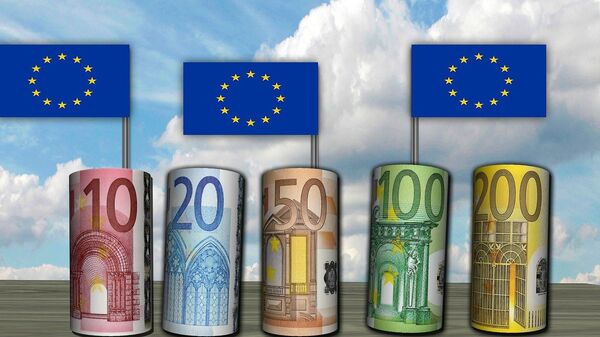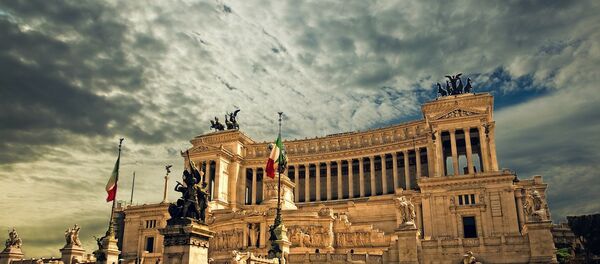The interview came as many politicians in Europe have voiced support for the idea of leaving the Eurozone to regain economic sovereignty, something that does not necessarily imply withdrawal from the EU.
Borghi recalled that money is a tool which helps estimate the value of products sold in a certain state as compared with other countries.
"It is clear that if the value of the country' currency is too high in comparison with the economic possibilities of the country, its products and services become too expensive, and its economy falls into a crisis," he said.
That was the case with all the countries which tried to link the value of their goods to a more expensive currency, he added, referring to "the experience of Argentina".
The country sought to link its currency to the dollar and after a brief period of prosperity was hit by a financial panic. This was only resolved after the country abandon the Argentine peso's fixed 1:1 exchange rate with the dollar, and the country is still negotiating the repayment of loans on which it defaulted at the time.
As for Italy's potential exit from the Eurozone, it could be fulfilled either through agreements or a unilateral move, Borghi said, adding that the first way, which is more beneficial, stipulates that all the countries should realize the fact that the Eurozone project has collapsed.
According to him, the easiest way is to divide the eurozone into two projects, with the first one due to be implemented by more economically powerful countries; gradually, after separate financial entities achieve wider independence, each state will return to its sovereign currency, Borghi said.
He suggested that the possible unilateral withdrawal from the Eurozone would require a more rapid implementation of the project because people would try to capitalize on the currency exchange rates.
Borgho explained that this will mean the temporary closure of the country's banks in order to convert the money in the national currency on the one-to-one exchange rate basis.
Exiting the Eurozone could be fulfilled via the joint efforts of other European countries, he said, citing his party's cooperation on the project with French and Austrian colleagues within the European Parliament.
"For Italy, the main advantage of leaving the Eurozone would be the possibility of pursuing a policy of economic growth, something that now remains an impossible task," Borghi pointed out.
Even if Italian citizens benefit from the tax cuts, they will use their earnings to buy products made abroad rather than in Italy, something that Borghi claimed will take place because the currency is "too strong."
He concluded by saying that the only way to achieve a new re-industrialization of the country and the transfer of production of goods to Italy is the country's withdrawal from the Eurozone.




